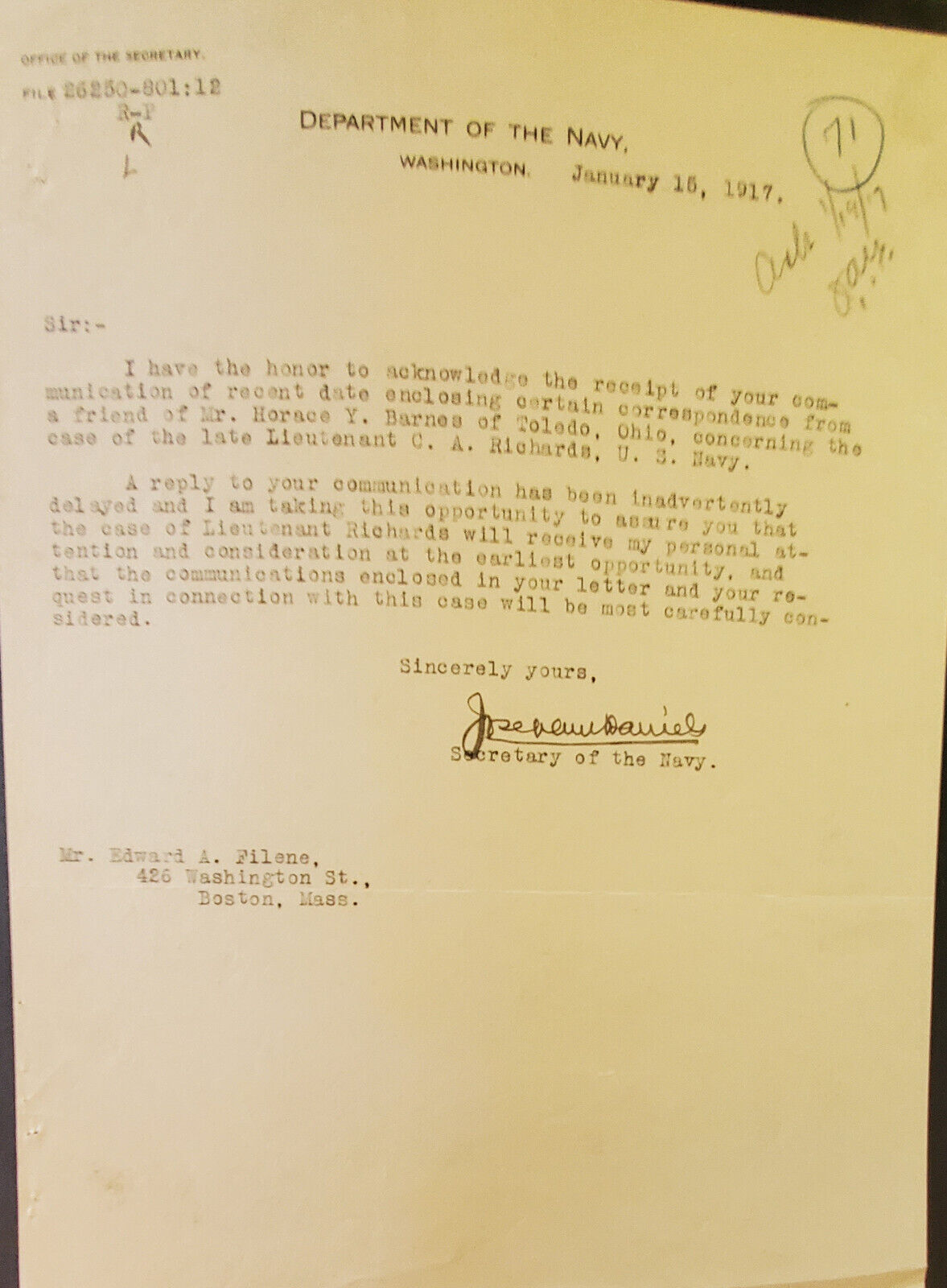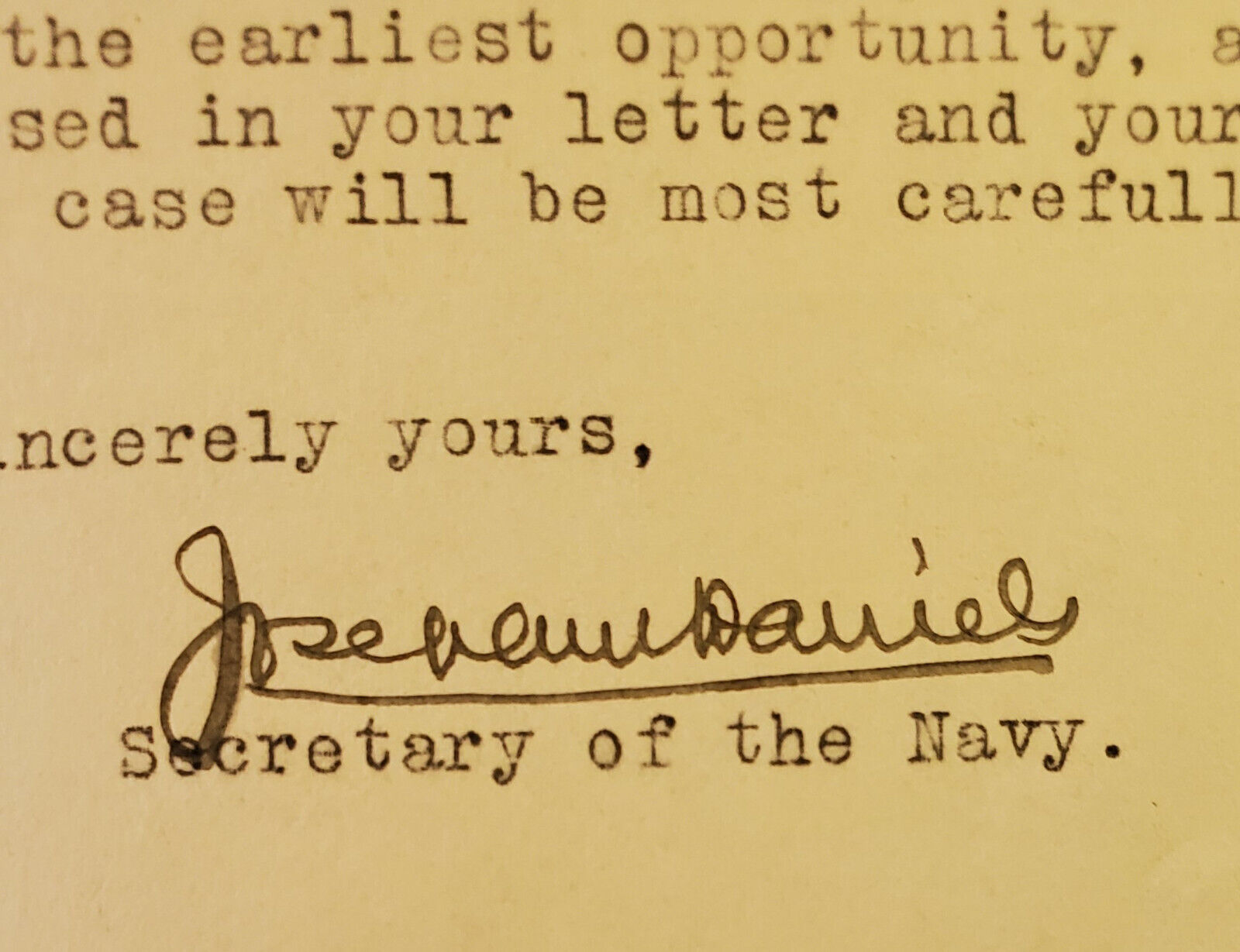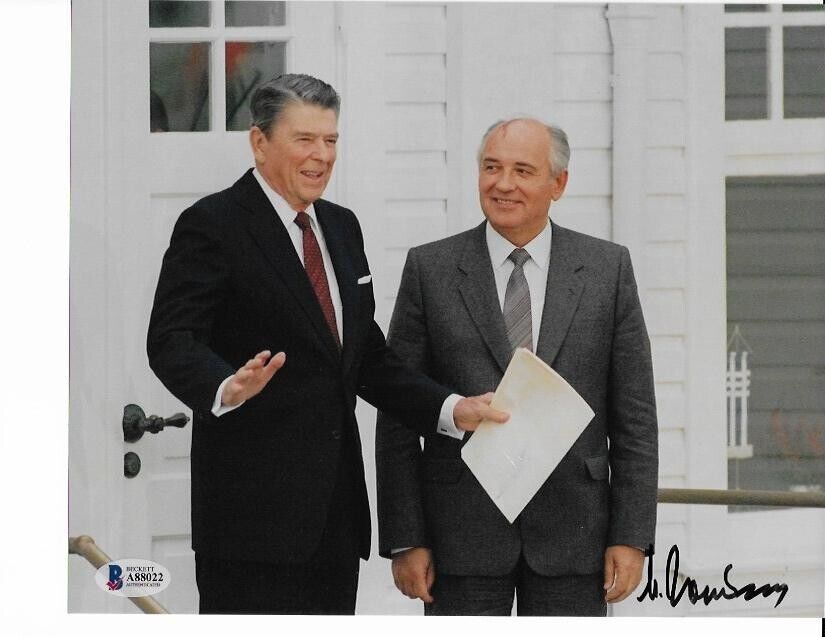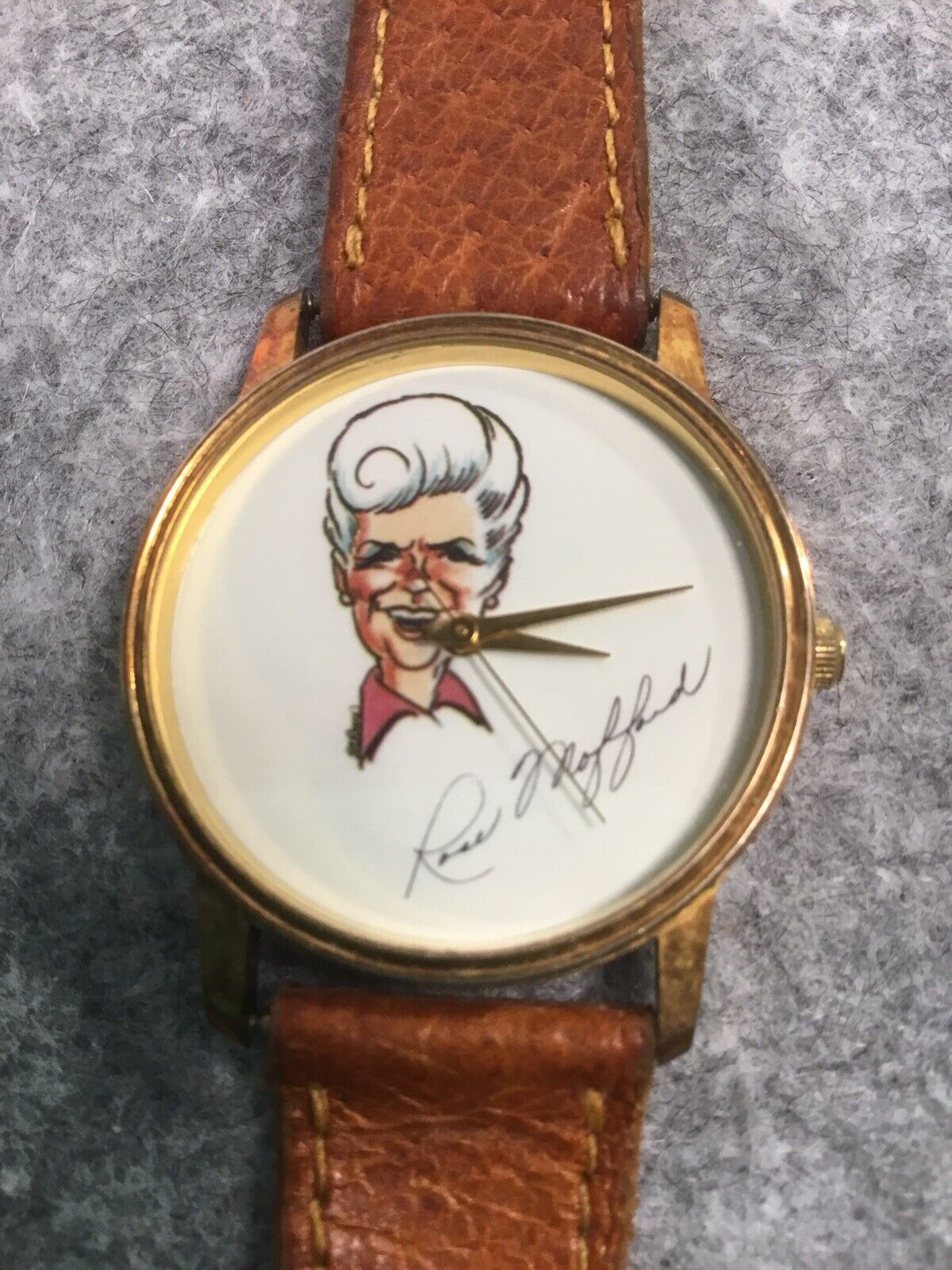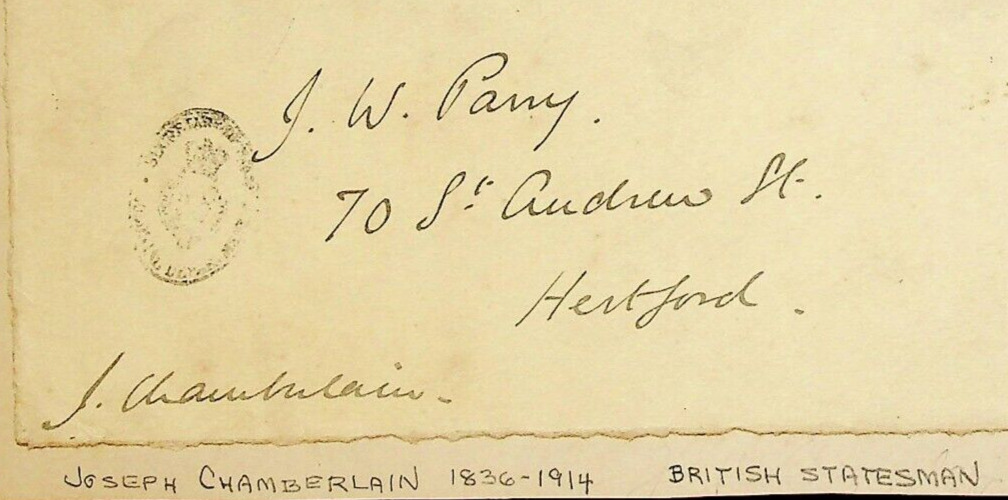-40%
Josephus Daniels - Typed letter signed as Secretary of the Navy January 15, 1917
$ 15.81
- Description
- Size Guide
Description
Letter pertaining to correspondence about naval personnel. Staple holes in upper right corner, handwritten annotations, see photo.From Wikipedia:
Josephus Daniels
(May 18, 1862 – January 15, 1948) was an American newspaper editor and publisher from the 1880s until his death, who controlled Raleigh's
News & Observer
, at the time North Carolina's largest newspaper, for decades. A
Democrat
, he was appointed by President
Woodrow Wilson
to serve as
Secretary of the Navy
during
World War I
. He became a close friend and supporter of
Franklin D. Roosevelt
, who served as his Assistant Secretary of the Navy and later was elected as United States president. Roosevelt appointed Daniels as his
U.S. Ambassador to Mexico
, serving from 1933 to 1941. Daniels was a vehement
white supremacist
and
segregationist
. Along with
Charles Brantley Aycock
and
Furnifold McLendel Simmons
, he was a leading perpetrator of the
Wilmington insurrection of 1898
.
As Secretary of the Navy, Daniels handled policy and formalities in World War I while his top aide, Roosevelt, handled the major wartime decisions. After the
Mexican Revolution
, as ambassador to Mexico, Daniels dealt with the anti-American government and its expropriation of American oil investments. In North Carolina in the early 20th century, he had been a leading
progressive
, supporting public schools and public works, and calling for more regulation of trusts and railroads. He supported
prohibition
and
women's suffrage
, and used his newspapers to support the regular Democratic Party ticket.
Daniels believed that "the greatest folly and crime" in U.S. history was giving "Negroes" the vote. He and his newspaper "championed the white supremacy cause in frequent news reports, vigorously worded editorials, provocative letters, and vicious front page cartoons that called attention to what the newspaper called the horrors of 'negro rule.'"
Daniels argued that as long as African Americans had any political power, they would block progressive reforms.
He was highly influential in the state legislature's passage in 1900 of a suffrage amendment that effectively
disenfranchised most blacks
in the state, excluding them from the political system for decades until the late 20th century. They were also excluded from juries and subject to legal racial segregation.
